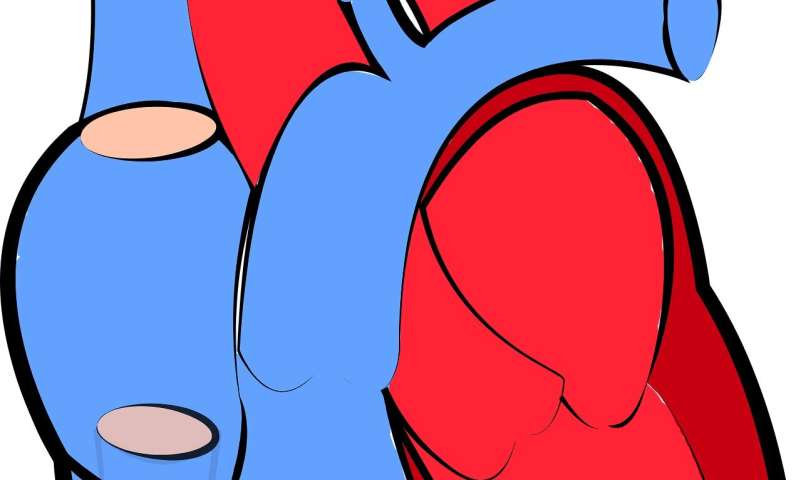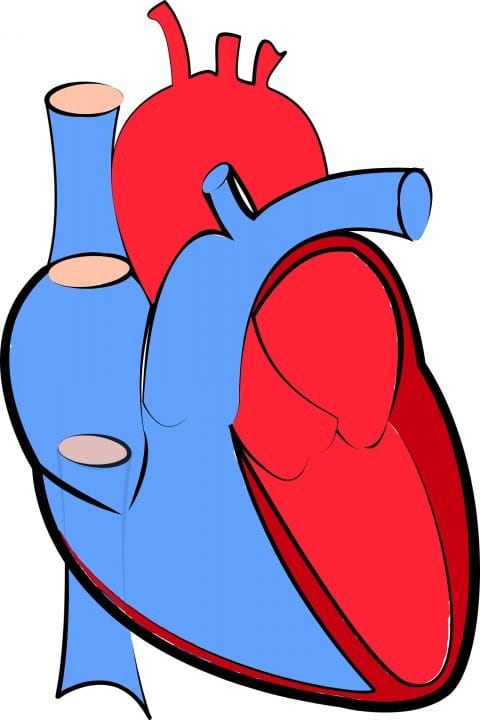
The menopause transition, the years leading up to menopause, is a time of increasing heart disease risk for women. Monitoring women’s health and lifestyle, while integrating early intervention strategies for good cardiovascular health, are important, especially during midlife and during menopause to help prevent heart disease, according to a new Scientific Statement from the American Heart Association, “Menopause Transition and Cardiovascular Disease Risk: Implications for Timing for Early Prevention,” published today in its flagship journal, Circulation.
“Over the past 20 years, our knowledge of how the menopause transition might contribute to cardiovascular disease has been dramatically evolving,” said Samar R. El Khoudary, Ph.D., M.P.H., FAHA, chair of the statement writing committee and associate professor of epidemiology at the University of Pittsburgh’s Graduate School of Public Health and the Clinical and Translational Science Institute. “We have accumulated data consistently pointing to the menopause transition as a time of change in cardiovascular health. Importantly, the latest American Heart Association guidelines that are specific to women, which were published in 2011, did not include the data that is now available on menopause as a time of increased risk for women’s heart health. As such, there is a compelling need to discuss the implications of this accumulating body of literature on this topic.”
For many women, the menopause transition—the change from the reproductive to the non-reproductive phase of life marked by changes in menstruation—begins when they are in their late 40s to mid-50s. Before this transition, women produce estrogen, the female sex hormone, which may also have cardio-protective effects. When women go through the natural menopause transition, their ovaries stop producing as much estrogen. This can also occur through surgical menopause (a partial or full hysterectomy, which includes removal of one or both ovaries). Significant changes in a woman’s cardiometabolic and vascular health, which lead to higher heart disease risk, occur during the menopause transition.
Since the increase in heart disease risk during menopause is associated with a decrease in the production of the hormone estrogen, health care professionals and scientists have studied if hormone therapy might help reduce cardiovascular risk. There is research indicating potential cardiovascular benefits of certain combinations of hormone therapy when initiated in early but not late menopause. Further research is needed to evaluate the role of other hormone therapies, and how long these interventions impact cardio-metabolic health.
Additionally, some studies show the benefits of hormone therapy, including a decreased risk of type 2 diabetes and protection from bone loss, seem to outweigh the risks for most women in early menopause. Current recommendations from leading professional medical societies endorse the use of hormone therapy for women who have recently begun the menopause transition, with appropriate indications.
“This Scientific Statement aims to raise awareness for both health care professionals and women about the significant adverse cardiovascular health changes accompanying midlife and the menopause transition and point out the importance of adopting prevention strategies early during this stage,” said El Khoudary. “As such, it emphasizes the importance of monitoring women’s health during midlife and targeting this stage as a critical window for applying early intervention strategies that aim to maintain a heathy heart and reduce the risk of heart disease. Thus, health care professionals may consider an aggressive, prevention-based approach for women during this stage in their lives to decrease the probability of a future cardiovascular disease occurrence, such as heart attack or stroke.”
In addition to summarizing research focused on the use of hormone therapy, the Scientific Statement provides an overview of risks related to the stages of menopause, age at menopause and lifestyle factors that affect women’s risk during this time.
Key takeaways in the statement include the following:
“Lifestyle and behavioral interventions are critical to maintaining cardiovascular health and reduce heart disease. However, we do not have adequate randomized clinical trials testing these interventions specifically during the menopause transition,” said Matthew A. Allison, M.D., M.P.H., FAHA, vice chair of the statement writing committee and professor and chief of the Division of Preventive Medicine in the Department of Family Medicine and Public Health at the University of California San Diego. “Similarly, we need randomized clinical trials of therapeutic interventions, like cholesterol-lowering medications and menopause hormone therapy, in women who are transitioning through menopause. This at-risk population has not been the focus of previous clinical trials, thus leaving us with questions about how the results from these studies might apply to women during this earlier phase of menopause.”
Heart disease risk in women increases leading up to menopause; early intervention is key (2020, November 30)
retrieved 30 November 2020
from https://medicalxpress.com/news/2020-11-heart-disease-women-menopause-early.html
part may be reproduced without the written permission. The content is provided for information purposes only.
This content was originally published here.







